Rwanda
Rwanda has become the third African country to ratify the African Continental Free Trade Area (AfCFTA) deal. Kigali submitted ratification instruments to the African Union (A.U.) on Saturday.
The first two countries were Kenya and Ghana who submitted documents on May 10. Rwanda was however, the first to ratify the Protocol on the Free Movement of Persons and the African Passport.
At the time Kenya and Ghana deposited their documents, the A.U. Commission chief, Moussa Faki Mahamat, said he hoped their lead will galvanize others who signed the treaty in Kigali to ratify it by 2019.
African Union Commission Chairperson
— African Union (_AfricanUnion) May 10, 2018AUC_MoussaFakicongratulates #Kenya #Ghana for being 1st countries to ratify #AfCFTA pic.twitter.com/XDPaxK1DJq
The AfCFTA is one of the biggest free trade bloc in the world, maybe only behind the World Trade Organization (WTO). It was signed by over forty Heads of State and government representatives during an A.U. summit in Kigali.
The signing of the AfCFTA is seen as only a step in chasing an ambitious dream of uniting Africa at the level of commerce.
Experts and watchers say, the real work is yet to take off, all things being equal. The fact that after all this while, some countries decided to hold on to ratification is not as much a setback but speaks to the challenges that lay ahead.
Since Ghana and Kenya, Prime Minister of Ethiopia Abiy Ahmed has also stated that the government was ready to ratify the AfCFTA and deposit its instruments to the AU.
Whiles lauding the AfCFTA, Abiy described the deal as key to the continent’s development through creation of employment for its citizens. Ensuring diversification and the collective well being of especially women and the youth.
Key facts about AfCFTA, the the historic trade pact
- The AfCFTA was signed in Kigali, Rwanda under the theme: ‘Creating one African Market.’
- If all nations come on board, it will bring together 1.2 billion people
- The estimated combine Gross Domestic Product (GDP) of the pact is over $2.5 trillion
- In terms of participating countries, it will be world’s largest free trading bloc, second round of negotiating is expected in December 2018
- It is part of the bigger Agenda 2063 being championed by the African Union (A.U.)
- The AfCFTA is expected to progressively eliminate tariffs on intra-African trade
According to the U.N. Economic Commission for Africa, AfCFTA can boost intra-Africa trade by 53.2%
- The AfCFTA is expected to progressively eliminate tariffs on intra-African trade
- Africa’s industrial exports stand to benefit the most from the pact
- The AfCFTA also aims to harmonize the efforts of sub-regional trading bloc and also consolidate gains
- It aims at empowering especially small and medium-sized enterprises (SMEs) who form around 80% of the region’s businesses.
- SMEs through the AfCFTA will have capacity to supply inputs to larger regional companies who will in turn deal with overseas export.
- Intra-continental trade in Africa is around 16% as against 51% for Asia and 70% for Europe, the pact aims to change that narrative.
- Some of the main hurdles are: local business laws, security and poor infrastructure.




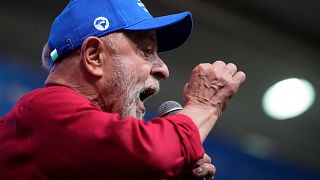

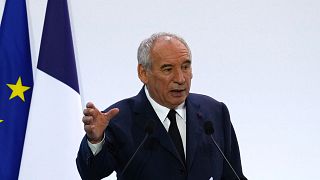
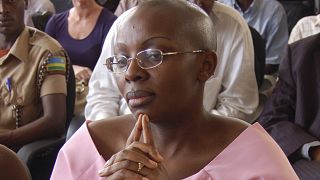
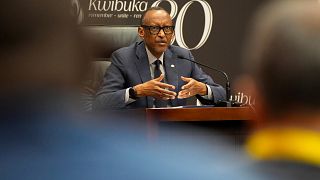
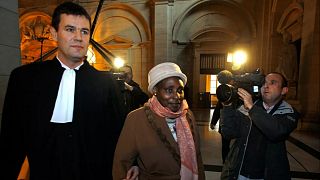



Go to video
AU names Burundian president special envoy for Sahel region
02:03
Muhammadu Buhari's legacy: higlight of his presidential tenure
01:01
Kenya: Visa-free travel now available for many African and Caribbean countries
11:17
Bridging the legal gap in Africa’s digital boom {Business Africa}
01:10
At least three killed after AU military helicopter crashes in Somalia's Mogadishu airport
Go to video
Paraguayan town celebrates vibrant Kamba Ra'anga festival with masks, fire and tradition